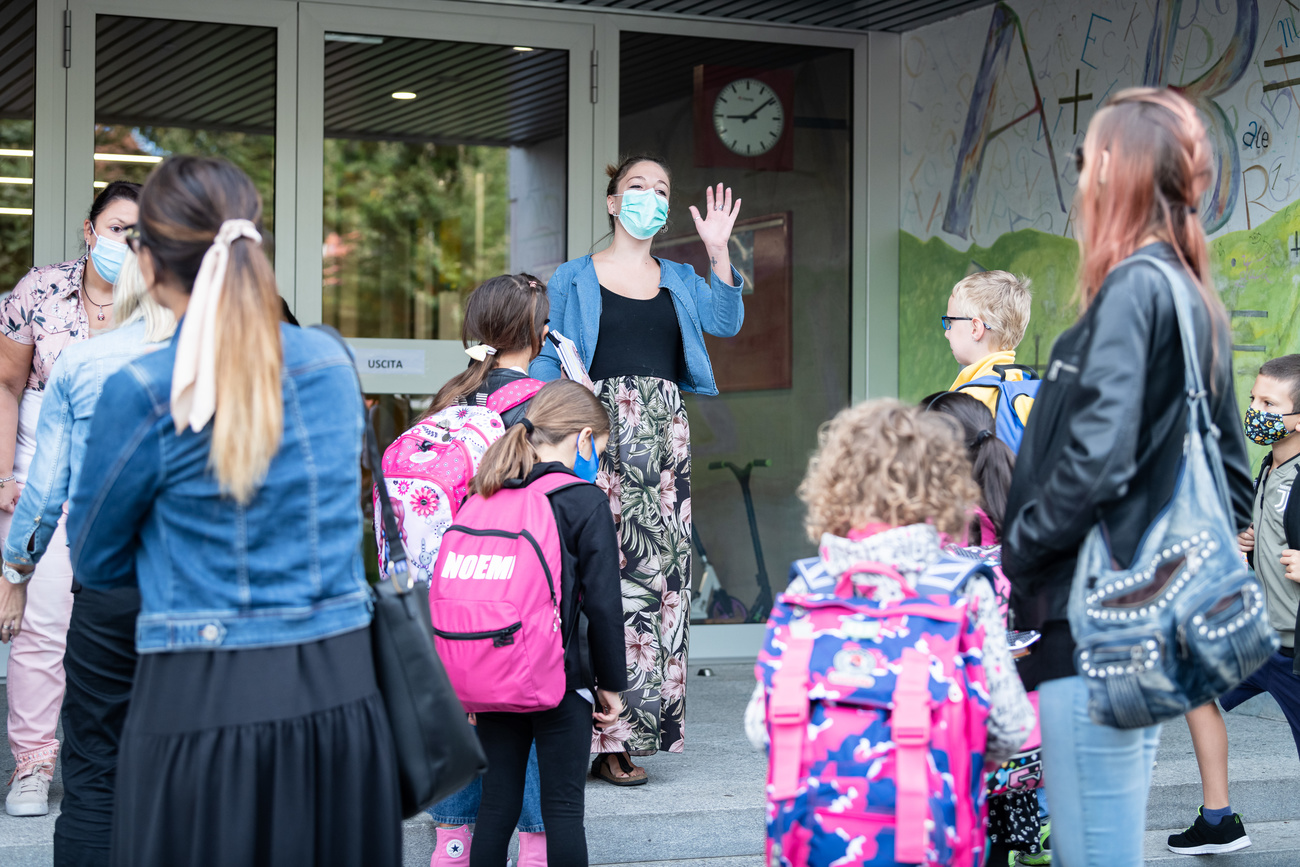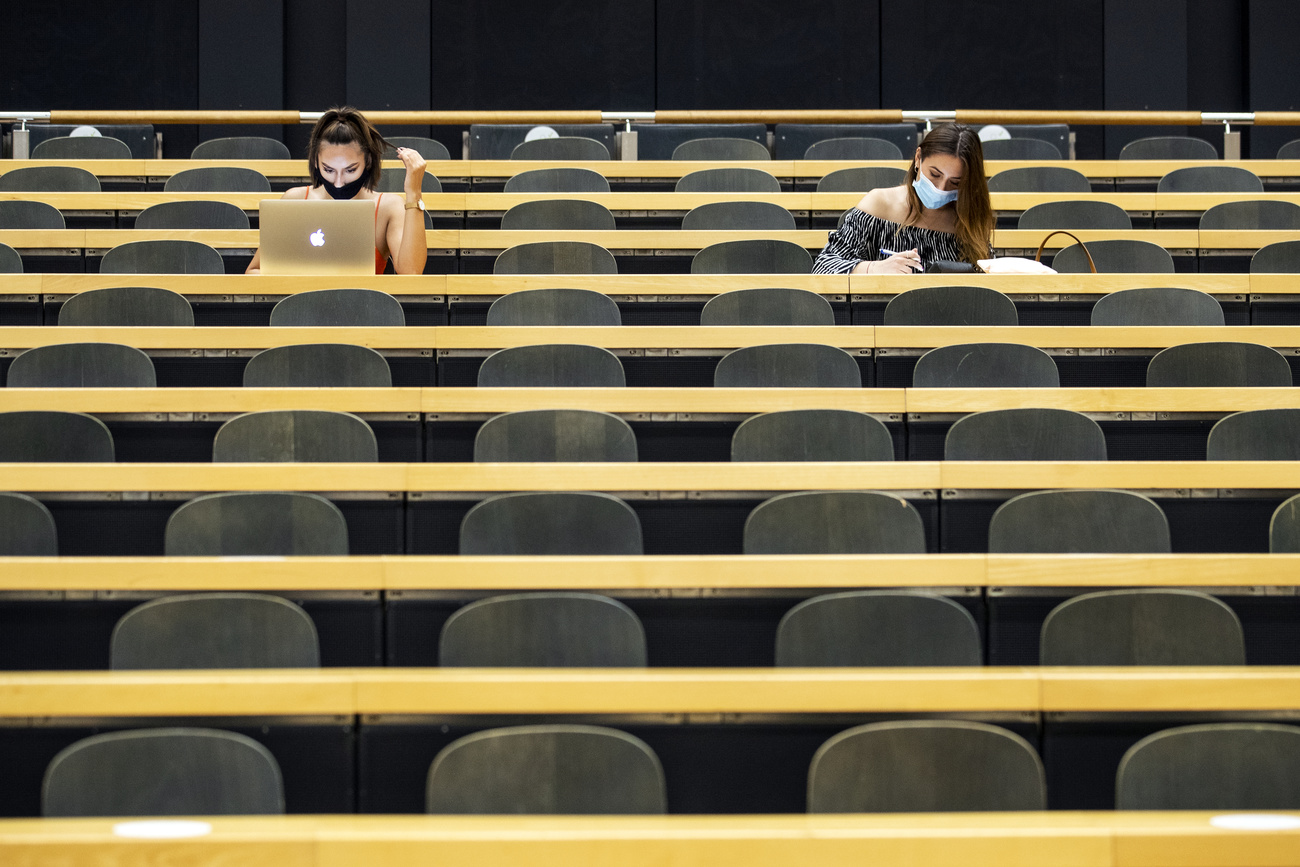
Study: closing primary schools harms educational equality
Schools closures during the Covid-19 lockdown slowed down younger pupils’ progress and increased the differences between them, a Swiss study has found. Older pupils were less affected.

Further closures of primary schools would therefore not be justifiable if you want to maintain educational equality, the research concluded.
The team around Martin TomasikExternal link at the University of Zurich used a computer-based feedback system – in which teachers gave pupils tasks – to assess how youngsters in the German-speaking part of Switzerland were doing before and during school closures in March and April.
This allowed them to follow the progress of 28,000 primary and secondary school pupils in German and maths.
Progress halved
They found that while home schooling did not affect the learning progress of secondary students (aged 12 plus), primary children’s progress dropped by half, according to results published in the Swiss mediaExternal link on Thursday and Friday.
In addition, some pupils learned faster than others during that time, whereas before the closure they had been learning at a similar pace.
The study did not go into the reasons for this, as no information about the social-economic status of the children involved was released, for data protection reasons.
However, as the Neue Zürcher Zeitung newspaper pointed out, previous studies have shown that children whose parents did not have the time and resources to support them during lockdown were the ones that generally fell behind.

More
One fifth of pupils ‘falling through remote learning net’
Researchers did not find any significant differences in progress for secondary pupils during lockdown. Tomasik gave three reasons for this. “Older pupils are less dependent on their parents, can better organize and motivate themselves and on average are much more familiar with digital devices,” he told the NZZ.
Primary school closures issue
The authors concluded that further primary school closures would “not be justifiable” in terms of educational equality. But if the Covid situation became worse and it was necessary, they recommended that children from more socially deprived backgrounds continue to be taught in class in small groups.
On Wednesday, the government announced that schools nationwide would stay open – under conditions – under its new anti-coronavirus measures taken in reaction to steeply rising Covid cases. Only universities would be closing.
Cantons, teachers and some experts are against school closures, although some scientists are in favour of the move.
Schools gradually reopened after the spring lockdown in May and June and pupils have been attending class – under hygiene and distancing conditions – in autumn. It is now obligatory for older pupils in secondary 11 level (15-16 plus) to wear masks. Some cantons go further and have also made mask wearing compulsory for secondary 1 level (12-15), but not for primary school.

More
Universities return to distance learning, schools stay open

In compliance with the JTI standards
More: SWI swissinfo.ch certified by the Journalism Trust Initiative






























You can find an overview of ongoing debates with our journalists here . Please join us!
If you want to start a conversation about a topic raised in this article or want to report factual errors, email us at english@swissinfo.ch.